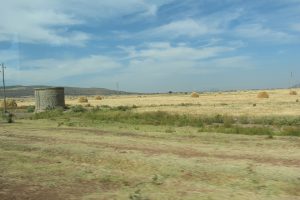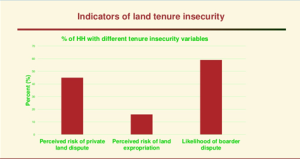Using data from the 2013 Agricultural growth program (AGP) survey of 7500 households from Ethiopia, this presentation at EDRI held on 15th April 2015, explores factors associated with demand for 2nd level land certification (SLLC). The 1st land certification program relied on the use of general boundaries, with no inclusion of a map or any kind of spatial reference, and was the largest, fastest and cheapest land registration and certification reforms in Africa.
However, with changes in tenure insecurity, population growth and pressure, along with increasing border related disputes, it became necessary for the government to re-address this issue of land tenure by implementing the 2nd Level Land Certification (SLLC) program.
The research presented reveals that greater awareness of the SLLC program and the benefits it brings in protecting land tenure against insecurities, creates greater likelihood and interest among individuals to acquire 2nd level land certification.
Moreover, this interest is significantly lower among households who predominantly acquire their parcels through family inheritance, compared to those who acquire these from government allocation or purchases.
There is significant variation in the results based on location and the timing of when the land was certified. For example, by comparing households from the SNNP (the latest region to implement the first-level land certification) with Tigray (the first region to implement the first-level land certification), these former households are less likely to demonstrate demand, while the latter households are more likely to show interest for the 2nd-level land certification. Hence, due to such variation among regions, the rollout strategy of the SLLC program should avoid being considered a blanket solution for the entire nation. Rather, the approach should be more sensitive and pragmatic, and take into account such regional variations in terms of drivers of perceived tenure insecurity and economic viability of the program. Link to presentation slides
Presented by Hosaena Ghebru (IFPRI).

